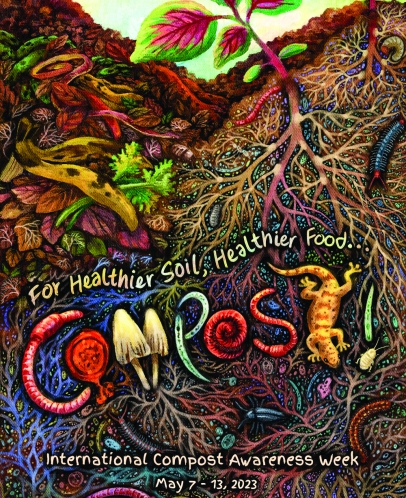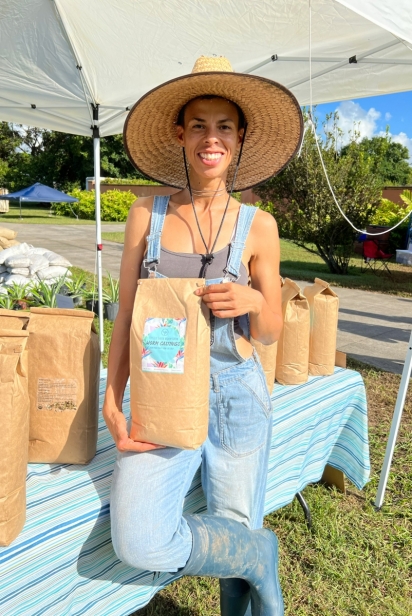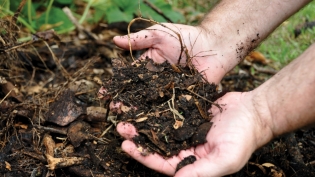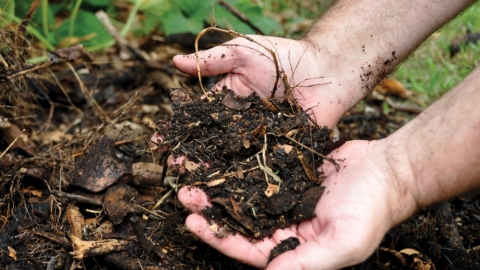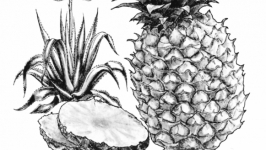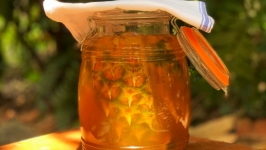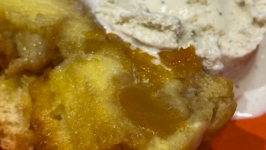International Compost Awareness Week: May 7-13
Garbage to Garden: The Power of Composting
Not only is composting a great way to keep food waste out of landfills, but it also creates rich soil for your garden. When you toss those banana peels and lawn clippings into your compost bin, you're helping reduce the amount of methane that's produced in landfills. And you’re improving your soil quality and reducing the need for watering. If you have a yard, get a compost bin or make one out of wood or wire. Apartment dwellers can save up their compost and take it to a compost hub, or use a service that picks up filled compost pails every week or two and replaces them with clean ones.
International Compost Awareness Week
For Healthier Soil, Healthier Food … Compost! is this year’s theme of the largest and most comprehensive education initiative of the compost industry. ICAW is celebrated nationwide and in other countries each year during the first full week of May. Community, school, government and business events encourage and celebrate composting from backyard to large scale. Find out more here.
How to Compost at Home
Find out everything about composting – how to build a bin, what to add to it, and how to use your compost at the UF IFAS Extension office online. Visit sfyl.ifas.ufl.edu and search for “compost.”
Online Composting Classes
Learn how to make rich organic soil from leaves, branches, paper plates and other recyclable materials through composting. Join University of Florida Master Gardeners for a step-by-step Zoom workshop on making your own soil. Workshop participants will receive a voucher for a free compost bin (one per household, Miami-Dade residents only) that you can pick up at the Miami-Dade County Department of Solid Waste Management. Register online.
May 27, 2pm-3:30pm
July 29, 2pm-3:30pm
Sept. 30, 2pm-3:30pm
Nov. 18, 2pm-3:30pm
Compost Hubs and Places to Get Compost
North Beach Compost Hub
8440 Collins Ave.
This hub serves as a drop-off location for participants and provides educational opportunities to learn more about how to compost and its benefits. Register first.
Miami Beach Compost Hub
Since 2016, the garden's independent compost program has accepted food scraps from residents, diverting over 100,000 pounds of food waste from landfills into gardens. Signs at the hub guide the drop-offs including what is accepted and what is not.
Monroe County
Monroe County and their yard waste contractor offer free compost to the residents of unincorporated Monroe County and the cities of Marathon, Key Colony Beach, Islamorada and Layton at the County’s three transfer stations. Residents can fill one 32-gallon trash can or six 5-gallon buckets with compost. Proof of residency is required. Check the website for dates.
Composting Services
Compost for Life
This compost pickup service operates in Miami-Dade for residents and businesses. Residents get a 5-gallon pink bucket to fill with food scraps. They swap your bucket for a clean one every week or two. Every six months, you get compost that you can share with local gardens or have delivered to you. Restaurants get clean roll carts that are picked up regularly.
Fertile Earthworm Farm
Fertile Earth Worm Farm serves commercial food waste generators in all of South Florida including the Keys. Their garbage trucks are specifically outfitted for hauling food scraps, allowing them to handle large volumes of food. They provide 65-gallon containers or 3-yard dumpsters to be filled with food scraps.
Renuable
Serving Broward and parts of north Miami-Dade, Renuable offers collection services to residents and organizations. Finished compost is donated to local agricultural projects, sold to local residents or returned to their Community Compost Program members for their own gardening project.
Can I compost it?
If you’re using a commercial service or dropping off at a hub, check first about what they accept. Find out details here.
YES
Banana skins
Bread
Corn cobs
Eggshells
Fish scraps (bury it)
Fruits and vegetables
Grass clippings
Human and animal hair
Hay
Landscape trimmings (cut in small pieces)
Leaves
Newspaper (shredded)
Peanut shells
Pine needles
Rice
Sawdust from untreated wood
Seaweed
Straw
Tea bags
Vacuum bag waste
NO
Animal byproducts (meat, bones, cheese, milk)
Bones
Cat litter (used)
Chemicals
Fat and grease
Plastic, foil or metal (recycle these)


